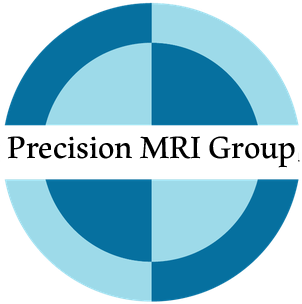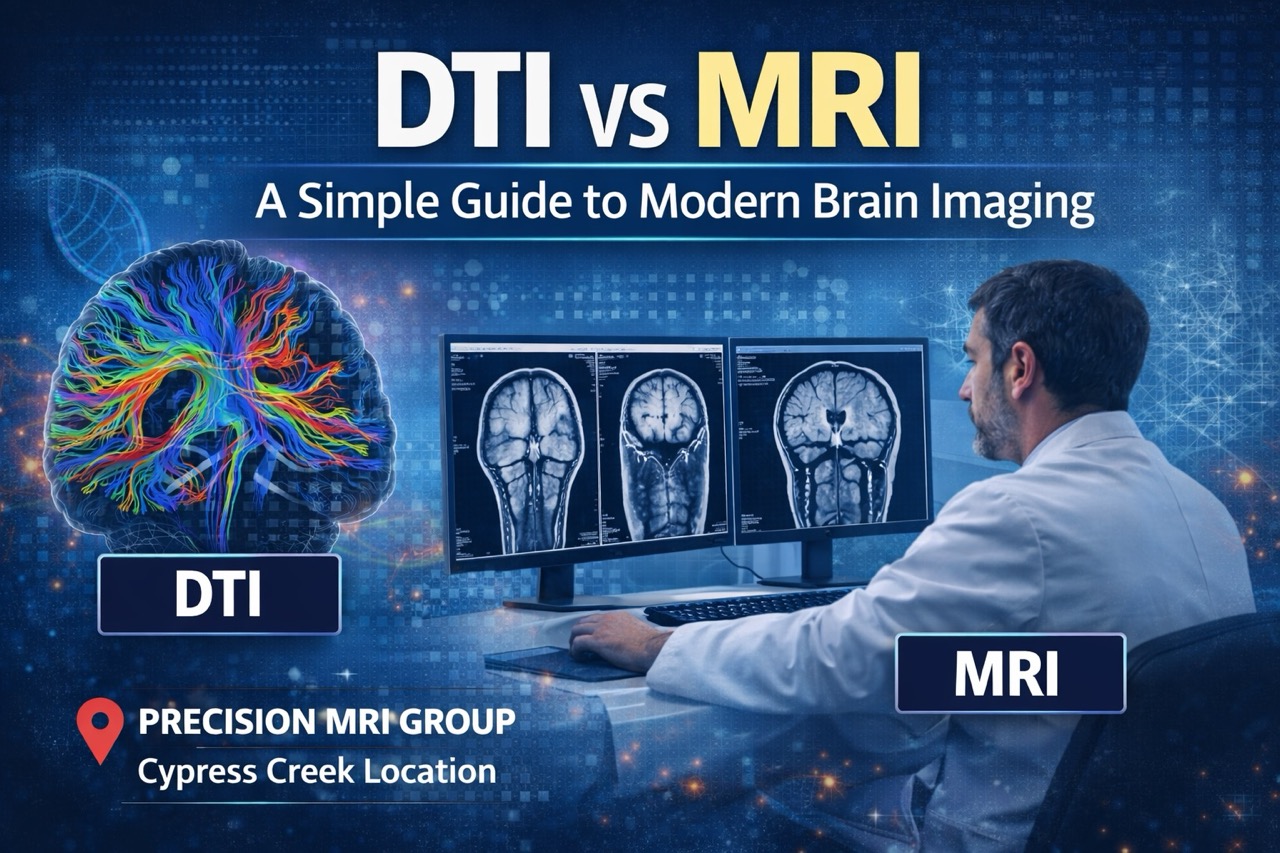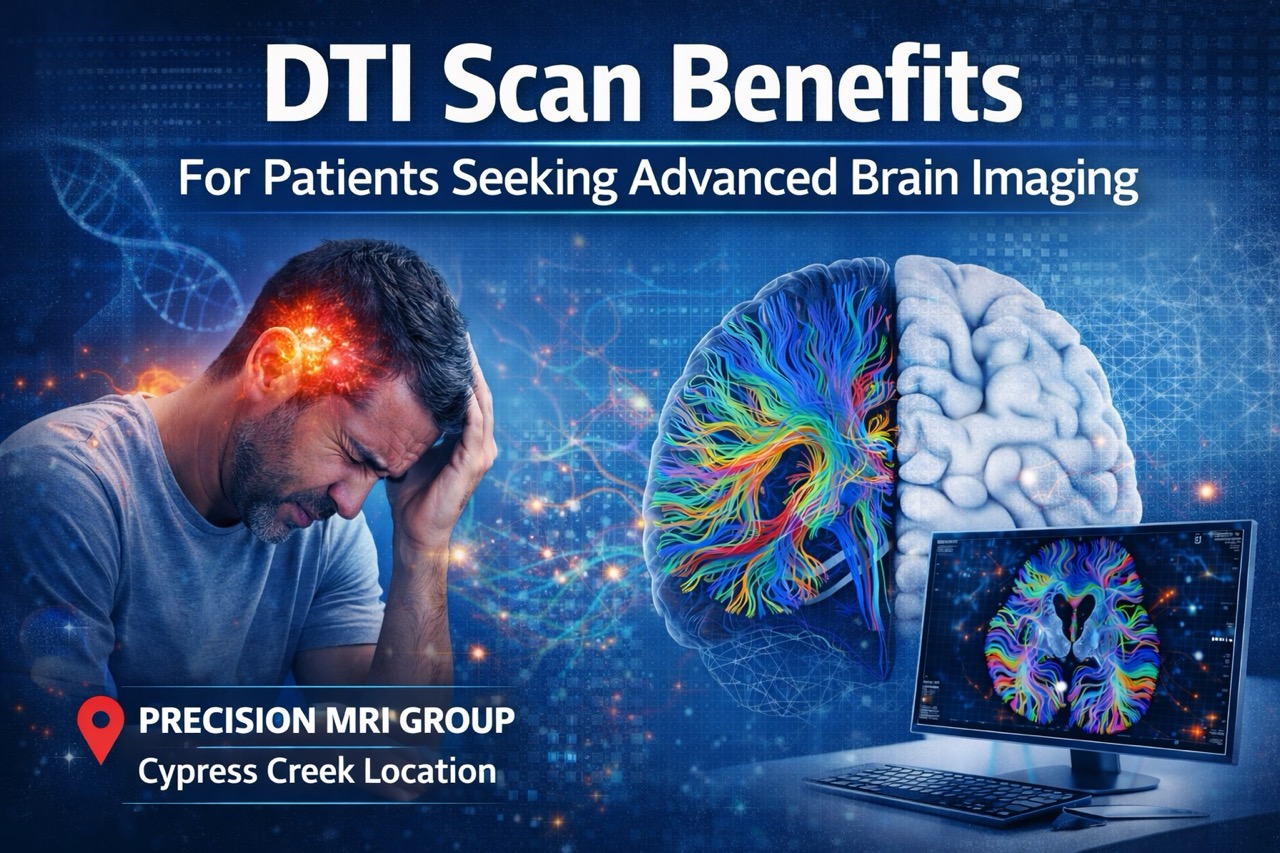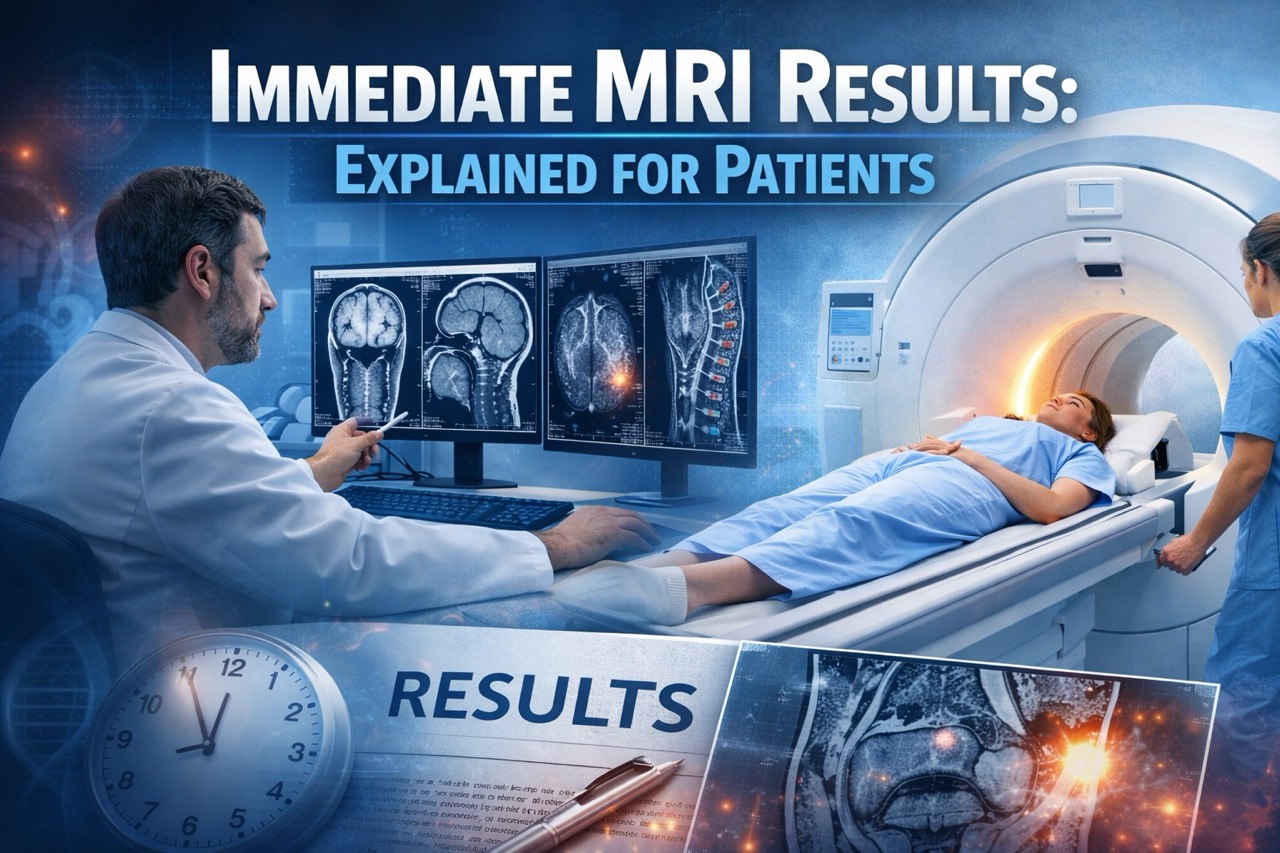Why Diagnostic Imaging After an Accident or Injury Is Essential for Recovery
When you’ve been in an accident, the first priority is getting the right diagnosis. Even when injuries aren’t visible, pain and discomfort can signal something serious beneath the surface. That’s where diagnostic imaging plays a crucial role. It helps identify injuries that can’t be detected with a physical exam alone, injuries that could impact your health and recovery if left untreated.
At Precision MRI Group, we understand how important accurate and timely imaging is after an accident or injury. Whether it’s a car crash, a workplace incident, or a slip and fall, the right scan can provide answers that set you on the path to healing. In this guide, we’ll walk you through why imaging matters, what options are available, and how we make the process convenient and stress-free for our patients.
The Importance of Diagnostic Imaging After an Accident
After an accident, some injuries are not immediately obvious. You might feel sore or think the pain will go away, but hidden injuries can become serious if left untreated. This is where diagnostic imaging becomes essential.
Advanced imaging, such as an MRI, can reveal issues that traditional X-rays often miss. These include soft tissue injuries like ligament or tendon damage, as well as spinal problems such as herniated discs or nerve compression. MRI scans also detect joint damage in areas like the knees, shoulders, or hips. For head injuries, an MRI can help identify concussions or internal bleeding that may not show up on a basic scan.
Detecting these injuries early can prevent long-term complications. With clear and detailed images, your doctor can create a treatment plan that addresses the real problem and supports your recovery.
How Diagnostic Imaging Helps Your Recovery
Accurate diagnostic imaging does more than confirm an injury. It plays a key role in guiding your entire recovery process. After an accident, your symptoms might be caused by more than one issue. Advanced imaging helps pinpoint the exact source of pain so your doctor knows what needs immediate attention. When physicians have clear and detailed images, they can avoid unnecessary procedures. Instead of relying on guesswork or invasive exploration, they can make informed decisions that protect your health and reduce recovery time.
Imaging also supports personalized rehabilitation planning. Physical therapists often use MRI results to design targeted exercises that improve mobility and speed up healing. At Precision MRI Group, we understand that timing is critical. That’s why our Board-Certified Radiologists provide accurate reports within 24 to 48 hours. In urgent cases, we offer immediate turnaround so your care team can act quickly.
The type of imaging you need depends on your injuries and your physician’s recommendation. Common options include:
MRI (Magnetic Resonance Imaging)
MRI, or Magnetic Resonance Imaging, is a powerful diagnostic tool that provides highly detailed images of the body’s internal structures. Unlike X-rays, which only show bones, MRI can capture clear images of soft tissues, ligaments, tendons, nerves, and organs. This makes it essential for diagnosing injuries that are not visible on other scans, such as spinal disc problems, muscle tears, or joint damage.
MRI uses magnetic fields and radio waves, not radiation, which makes it safe for repeated use when needed. After an accident, MRI helps doctors identify internal injuries accurately so they can plan the best treatment. The scan is painless, though it requires the patient to remain still for clear images. At Precision MRI Group, we ensure the process is comfortable and stress-free, while providing results that physicians and patients can trust for proper care and recovery.
CT Scan or X-Ray (Ordered by Physician)
CT scans and X-rays are common imaging tools but serve different purposes from MRI. X-rays are quick and effective for detecting fractures and bone-related injuries. CT scans, on the other hand, provide detailed cross-sectional images, making them helpful in evaluating internal injuries and bleeding. Both are useful in emergency situations when rapid diagnosis is required.
However, these imaging methods have limitations. X-rays cannot show soft tissue damage, and CT scans involve exposure to ionizing radiation. That’s why MRI is often preferred for diagnosing ligament injuries, spinal issues, and other soft tissue conditions after an accident.
When your doctor orders an X-ray or CT scan, it is usually to rule out fractures or severe internal injuries first. At Precision MRI Group, we specialize in MRI because it offers the most detailed, radiation-free imaging for accurate diagnoses, supporting both your medical and legal needs after an injury.
When Should You Get an MRI After an Accident?
Knowing the right time to get an MRI after an accident can make a big difference in your recovery. Some injuries aren’t visible right away, and waiting too long could lead to serious complications. An MRI helps detect hidden issues and gives your doctor the information needed to plan treatment quickly. If you’re unsure whether you need imaging, pay attention to how your body responds in the hours and days following an accident. Getting the scan sooner rather than later can prevent further damage and speed up healing. Here’s when you should consider scheduling an MRI right away:
-
Persistent or severe pain
-
Numbness or tingling in limbs
-
Limited range of motion
-
Headaches or dizziness after head trauma
Delaying imaging can lead to complications, so don’t ignore warning signs. Even if your injuries seem minor, an MRI can uncover hidden damage.

What to Expect During Your MRI Appointment
Getting an MRI after an accident may feel overwhelming if you don’t know what to expect. Understanding the steps can help ease anxiety and prepare you for a smooth experience. Here’s what happens during your MRI appointment so you feel confident and ready for your scan:
1. Dress Comfortably and Avoid Clothing with Metal
Wear soft, loose-fitting clothing to your appointment. Clothing with metal pieces like zippers or buttons can interfere with the MRI’s magnetic field. If necessary, you may be asked to change into a gown provided by our team to ensure the best image quality and keep you comfortable.
2. Remove Jewelry and Accessories
Before your scan, take off all jewelry, watches, hairpins, and electronic devices. Metal objects and electronics can affect the MRI results and may be unsafe near the magnetic field. Leaving valuables at home is best, but our staff will guide you on what items need to be removed.
3. Communicate Health Details with Our Staff
Inform our team about any implants, pacemakers, or metal fragments in your body. Also, let us know if you are pregnant or have allergies. Sharing this information helps us determine the safest approach and ensures the MRI is tailored to your specific health needs.
4. The MRI Scan Process
During the scan, you’ll lie comfortably on a sliding table that moves into the MRI machine. Staying still is important for clear images. The scan is painless, but you’ll hear repetitive tapping sounds as the machine captures detailed images. The entire process usually takes 30–60 minutes.
Why Choose Precision MRI Group for Post-Accident Imaging?
When you’ve been injured, choosing the right imaging provider is important for your recovery and peace of mind. At Precision MRI Group, we focus on making the process simple, convenient, and stress-free. We offer same-day appointments, so you don’t have to wait for essential imaging after an accident. Our extended late-night and weekend hours make scheduling easier for patients with busy lives. If getting to your appointment is difficult, we provide free transportation upon request, ensuring you can access the care you need without extra challenges.
Clear communication matters, which is why our multilingual staff speaks English, Spanish, and Creole to help every patient feel comfortable and informed. You can also count on fast, accurate results, with reports ready within 24 to 48 hours, and immediate options for urgent cases. With four convenient Florida locations in Pembroke Pines, Cypress Creek, Lake Worth, and Port St. Lucie, advanced MRI technology, and a caring team, Precision MRI Group is here to support your health and recovery with efficiency and compassion.
Final Checklist for Your Imaging Appointment
Before your appointment, make sure you:
✅ Bring your doctor’s MRI script and insurance information.
✅ Wear loose, metal-free clothing.
✅ Remove all jewelry and electronic devices.
✅ Follow any special instructions if your MRI includes contrast.
✅ Ask about free transportation if you need help getting to our office.
Book Your MRI Today with Precision MRI Group
Waiting to schedule your MRI could delay your recovery. At Precision MRI Group, we make it easy with same-day appointments, flexible evening and weekend hours, and free transportation upon request. Our advanced MRI technology and caring team ensure a comfortable experience from start to finish.
Whether you’re near Pembroke Pines, Lake Worth, Cypress Creek, or Port St. Lucie, one of our convenient Florida locations is ready to help you take the next step toward healing. With fast report turnaround and compassionate care, we’re here when you need us most.
Precision MRI Group Locations:
-
Pembroke Pines
9696 Pines Blvd., Pembroke Pines, FL 33024
Phone: (954) 391-7844, Contact: Amalia (amalia@pinesimagingcenter.com) -
Lake Worth
2311 10th Ave N Suite #2 and Suite #1, Lake Worth, FL 33461
Phone: (561) 623-8346, Contact: Marisol (marisol@mriprecision.com) -
Cypress Creek
2122 NW 62nd Street, Suite 107, Ft. Lauderdale, FL 33309
Phone: (954) 677-1069, Contact: Latoya Reid (latoya@cypresscreekmri.com) -
Port St Lucie
879 E Prima Vista Blvd #2, Port St. Lucie, FL 34952
Phone: (772) 344-7566, Contact: Laura Schwenzer (laura@mriprecision.com)
📞 Call today or email the office nearest you to schedule your appointment. Take control of your recovery, book your MRI now.




